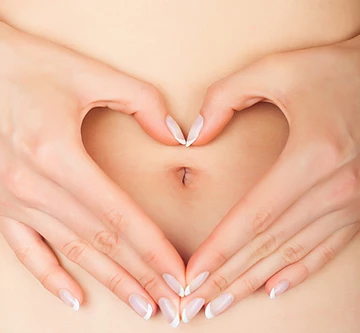Helpful Germs
The bacteria in your gut are incredibly important for your health and weight.
You have many bacteria in your body. In fact, you have more of them than you have cells. Most are good for you.
The ones found in your gut not only help you digest foods, they work all over your body and can be good for your physical and mental health.

Gut Microbiome
Your Microbiome is home base for the bacteria in your digestive tract. Here, they help you break down food and turn nutrients into things your body can use. They stop growing when they run out of food, so you’ll only have what you need.
Fighting the Good Fight
In the gut microbiome, the “good” bacteria do more than just help with digestion. They help keep your “bad” bacteria in check. They multiply so often that the unhealthy kind don’t have space to grow. When you have a healthy balance of bacteria in your gut, it’s called equilibrium.
Unhealthy Balance
Studies have found that if you have too much of a certain kind of bad bacteria in your gut microbiome, you’re more likely to have conditions such as Crohn’s disease, Ulcerative colitis & Irritable bowel syndrome (IBS).

Researchers are looking into new treatments for them that target the bacteria in the gut microbiome.
Gut Bacteria and Your Heart
Some kinds of gut bacteria may be part of the link cholesterol has to heart disease. When you eat foods like red meat or eggs, those bacteria make a chemical that your liver turns into something called TMAO (trimethylamine-N-oxide). TMAO may help cholesterol build up in your blood vessels. Researchers are studying a natural substance called DMB that’s in olive and grapeseed oil. They think it might keep your bacteria from making TMAO.
Gut Bacteria and Your Kidneys
Too much TMAO also may lead to chronic kidney disease. People who have the disease don’t get rid of TMAO like they should. That surplus can lead to heart disease. Researchers think it’s possible that too much TMAO might make you more likely to have chronic kidney disease in the first place.
Gut Bacteria and Your Brain
Your brain sends messages all over your body. Researchers believe your gut may talk back. Studies show that the balance of bacteria in the gut microbiome may affect your emotions and the way your brain processes information from your senses, like sights, sounds, flavours, or textures.
Scientists suspect that changes in that balance may play a role in diseases like autism spectrum disorder, anxiety, and depression, as well as chronic pain.
Gut Bacteria & Obesity
An unhealthy balance in your gut microbiome may cause crossed signals from your brain when it comes to feeling hungry or full. Researchers think there may be a link to the pituitary gland, which makes hormones that help set your appetite. That gland can affect the balance of bacteria in your gut, too. Some studies on treating obesity are exploring this link.
Can You Change Your Gut Bacteria?
You get your gut microbiome from your mother at birth, and the world around you affects it as you grow up. It’s also influenced by what you eat. That’s why it can be different depending on where you live – and why you may be able to tilt the balance a bit. A Digestive Health ConsultationDigestive Health Consultation is the first step in discovering the imbalances in your microbiome and setting you on the path the better gut health. Call 01323 732024 to book your Digestive Health Consultation in Eastbourne today with Natural Nutrition.
Call 01323 732024 to book your Digestive Health Consultation in Eastbourne today with Natural Nutrition.
Probiotics
Found in some foods, these are “good” bacteria like the ones already in your gut. They can add to the bacteria in your intestinal tract and help keep everything in balance. But they’re not all the same. Each type works in its own way and can have different effects on your body.
Sources of Probiotics
You can find them in dairy products like yogurt and aged cheeses. Look on the ingredients list for live cultures of bacteria like bifidobacteria and lactobacilli. They’re also in fermented vegetables, like kimchi and sauerkraut, and pickled vegetables, like onions and gherkins.
Prebiotics
Think of these as a food source for probiotics. They may help your body take in calcium better and boost the growth of helpful bacteria in your gut.
They’re found in fruits and vegetables, like:
- Bananas
- Onions
- Garlic
- Leeks
- Asparagus
- Artichokes
- Soybeans
You can also get them in foods with whole wheat.
Synbiotics
Probiotics can boost the growth of good bacteria, and prebiotics are good for probiotics. When you combine the two, it’s a synbiotic. The idea behind them is to help probiotics live longer. You can make synbiotic combinations with things like bananas and yogurt or stir-fry asparagus with tempeh.